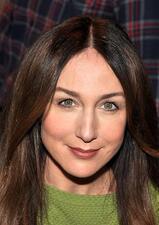Performing Arts: Film
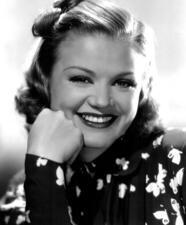
Simone Simon
Simone Simon was a prolific international film star, known for her iconic appearance and voice. Simon spent her childhood in Marseilles and Madagascar and attended schools in Berlin, Budapest, and Turin before making her film debut in 1931. She became popular in France and Hollywood for her mysterious, vulnerable, and seductive acting style, and made over thirty-eight feature films in her career.
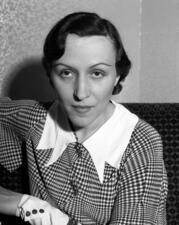
Berta Singerman
Berta Singerman (1901-1998) was an Argentine actress and reciter of poetry, famous throughout the Ibero-American cultural world. Born in Russia to a family of traditional singers (chazanim), she immigrated to Buenos Aires, Argentina, when she was four years old.

Jenny Slate
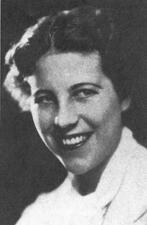
Tess Slesinger
Novelist and Hollywood screenwriter Tess Slesinger was born in New York on July 16, 1905. She published several works, including: The Unpossessedand Time: The Present. Slesinger died of cancer at age thirty-nine before the premiere of one of her final works, the acclaimed A Tree Grows in Brooklyn.
Stacey Snider
At the age of 26, film executive Stacey Snider was already a director of development at Guber-Peters Co. at Warner Brothers. In 1992, Snider became the highest-ranking female executive at a Hollywood studio when she was named President of Production at Tri Star; later, as the CEO of Universal Pictures, Snider led the company as it achieved unprecedented success in the industry.

Susan Sontag
Susan Sontag was one of the most prominent American writers of the twentieth century. Her work across cultural criticism, fiction, drama, and film, as well as her public persona, made her an icon of the New York intelligentsia whose writing on photography, illness, and art continually inspire engagement and debate.
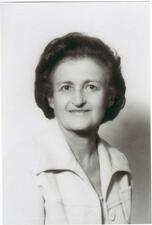
Johanna Spector
Johanna Spector was an influential ethnomusicologist whose writings, recordings, and film projects documented the music of little-studied Jewish communities from around the world. After surviving the Holocaust, Spector earned her doctorate, founded the ethnomusicology department at the Jewish Theological Seminary, established the Society for the Preservation of Samaritan Culture, and served as president of the Asian Music Society.
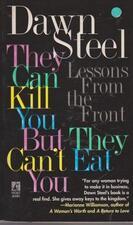
Dawn Steel
Jewish Gender Stereotypes in the United States
Stereotypes of Jews have existed from their arrival in the New World to the present. Jews were portrayed as greedy, unscrupulous, and unrefined. However, Jews also created stereotypes about one another based on class, gender, and religion. Specifically, the Ghetto Girl, Jewish Mother, JAP, and others reflected tensions between genders about the place of Jews in the economy and culture.
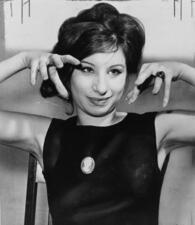
Barbra Streisand
Sara Sugarman
Sara Sugarman is a Welsh-born movie director and actor, who made her mark as a small-screen performer before stepping behind the camera to direct international award-winning movies with a Welsh twist.
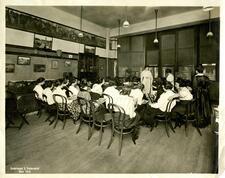
Helen Tanzer
Helen Tanzer was an educator and translator in the early twentieth century. Contributing to the dissemination of classical and archaeological works, Tanzer well fulfilled the rigorous requirements of scholar and teacher.
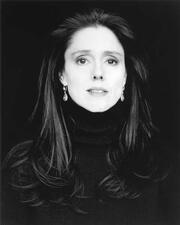
Julie Taymor
Julie Taymor is an award-winning theater, opera, and film director best known for being the first woman to win a Tony Award for directing a Broadway Musical: The Lion King.

Television in the United States
Jewish women have had a long-standing, complex, often fraught relation to American television. They have had to battle a male-dominated production system and sexist stereotypes, but also have seen significant advances, in front of and behind the screen, resulting from the cable and streaming revolutions and third-wave feminist activism.
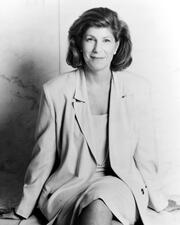
Nina Totenberg
Nina Totenberg has broken important stories on the United States Supreme Court during more than four decades of covering legal affairs for National Public Radio. She helped bring to public attention the previously hidden issue of sexual harassment during the controversial confirmation hearing of Justice Clarence Thomas and has received numerous accolades as a path-breaker in the male-dominated world of Washington journalism.
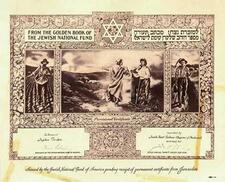
Sophie Tucker
Vaudeville legend and Broadway star Sophie Tucker defied convention with her saucy comic banter and music. Tucker became famous internationally for her singing performances and delighted audiences throughout America and Europe with her rendition of “My Yiddishe Momme.” Tucker was proud of her Jewish identity and created the Sophie Tucker Foundation, which supported various actors’ guilds, hospitals, synagogues, and Israeli youth villages.

Lia Van Leer
A pioneer in the field of art film programming and film archiving in Israel, Lia van Leer was the founder of the Haifa Cinematheque, the Jerusalem Cinematheque, the Israel Film Archive, and the Jerusalem Film Festival. As a result of her work, film in Israel is seen as an expression of culture and art and is funded by government agencies.
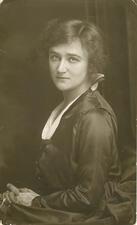
Salka Viertel
Salka Viertel was an influential actress, writer, and organizer of Jewish European immigrants in Hollywood. Viertel co-wrote screenplays for several Greta Garbo films. Her Hollywood salon welcomed émigrés such as Thomas and Heinrich Mann, Bertolt Brecht, Fred Zinnemann, Arnold Schoenberg, and Reinhardt.
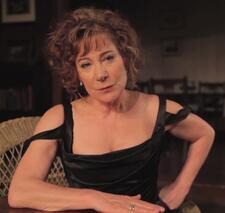
Zoe Wanamaker
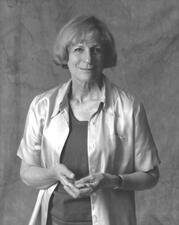
Ruth Weisberg

Rachel Weisz
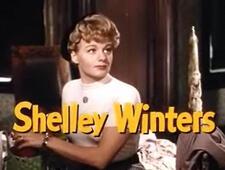
Shelley Winters

Women in Israeli Cinema
For many years, women played a secondary role in Israeli cinema, with little voice of their own and limited largely to objects of the male gaze. More recently, women filmmakers, often emphasizing autobiographical narratives, have begun to critique the patriarchal family and present new perceptions of female sexuality and female social roles.
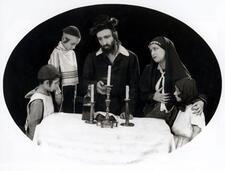
Yiddish Film in the United States
American Yiddish films captured the language, lifestyle, values, dreams, and myths of Yiddish culture, which resonated deeply with many Yiddish immigrant communities in New York City. Yiddish film reached its “Golden Age” between 1936 and 1939, and many influential women graced the Yiddish screen, including Moly Pico, Celia Adler, Jennie Goldstein, Lili Liliana, and Berta Gersten.
